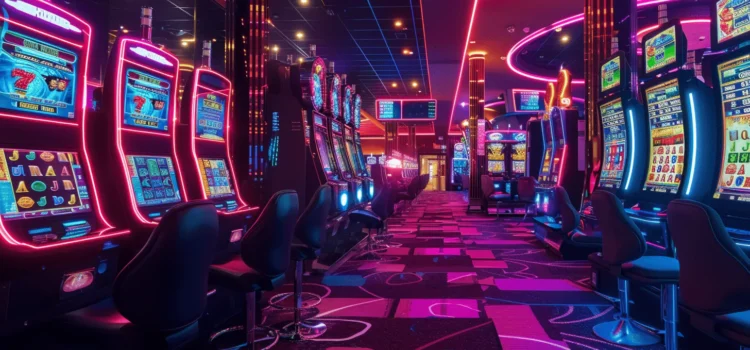
공유하다:
Casinos are unique environments, places that seem to exist in their own world, separate from the ordinary experiences of everyday life. Upon entering a casino, you are greeted by a blend of flashing lights, the constant chime of slot machines, and the sound of chips being tossed on gaming tables. The sensory overload is immediate and intense, but beneath this excitement lies a rich and complex psychological and cultural landscape that makes casino life so intriguing.
The Casino as a World of Its Own
When one steps into a casino, it can feel like entering a completely different world. The environment is meticulously designed to captivate attention, from the dizzying array of lights to the steady hum of activity, and the sense of time seems to evaporate. Many casinos are deliberately designed without windows or clocks, further disconnecting patrons from the outside world and encouraging them to remain engrossed in the casino’s offerings for as long as possible.
Dr. Watts, who first entered a casino at the age of 40, was struck by the unique pace, culture, and social interactions within this environment. Casino-goers come from all walks of life: young and old, experienced gamblers and curious newcomers, all contributing to an atmosphere charged with both anticipation and tension. The act of gambling in a casino is different from a simple monetary exchange like buying groceries; players exchange cash for chips, which serve as a symbolic medium, blurring the lines between financial value and the thrill of the game. This abstraction from real money can lead to reckless behavior, as chips don’t carry the same emotional weight as cash.
The Psychology of Gambling
Dr. Watts’ experience as a forensic psychologist provided him with an understanding of the psychological forces at play in a casino environment. Gambling appeals to people for a variety of reasons, and the reasons often differ from one individual to another. For some, it’s the thrill of risk-taking, the adrenaline rush that comes with each spin of the wheel or toss of the dice. For others, it may be an escape from everyday life, a chance to immerse themselves in an exciting, fast-paced environment where the possibility of winning big always looms in the background.
At its core, gambling taps into one of the most fundamental aspects of human nature: the desire for reward. The chance to win money, especially through an unpredictable process like gambling, creates an exhilarating sense of anticipation. The concept of intermittent reinforcement, where rewards are sporadically given, is central to the allure of gambling. People are hardwired to chase the next win, which can keep them playing for longer than they originally intended.
However, this same psychological mechanism can lead to addiction. Problem gamblers often fall into the trap of the “gambler’s fallacy,” the belief that they can influence outcomes that are purely based on chance. Elaborate theories develop around personal “systems” or “strategies” to beat the odds, despite the mathematical reality that the house always has the advantage.
Cultural and Behavioral Patterns in Casino Life
Casinos are more than just spaces for gambling; they are also social environments governed by unwritten rules and norms. There is a culture in casino life that regular players come to know well—certain etiquettes on the gaming floor, unspoken expectations between players and dealers, and a shared understanding of the highs and lows that come with betting.
In addition to these social norms, there are ritualistic behaviors that people exhibit while gambling. Some players may have lucky charms, follow specific betting patterns, or develop superstitions about certain games or tables. These rituals give players a sense of control, even though gambling is ultimately a game of chance. For many, these cultural patterns become an integral part of their casino experience, creating a sense of community and belonging.
Addiction and Treatment
Dr. Watts also delves into the darker side of gambling: addiction. Gambling addiction is a serious condition that can devastate lives, leading to financial ruin, strained relationships, and mental health issues. While not everyone who visits a casino is at risk of becoming addicted, the environment can be particularly dangerous for individuals who are susceptible to compulsive behaviors.
Watts explains that problem gamblers often experience what psychologists call “chasing losses,” the compulsion to continue gambling in the hope of winning back money that has been lost. This cycle of chasing losses can spiral out of control, leading to increasing amounts of money being wagered in increasingly desperate attempts to break even.
Treatment for gambling addiction often involves cognitive-behavioral therapy (CBT), which helps individuals recognize the irrational thought patterns that drive their compulsive behavior and develop healthier coping strategies. Additionally, support groups like Gamblers Anonymous provide a space for individuals to share their experiences and receive encouragement from others who understand their struggles.










